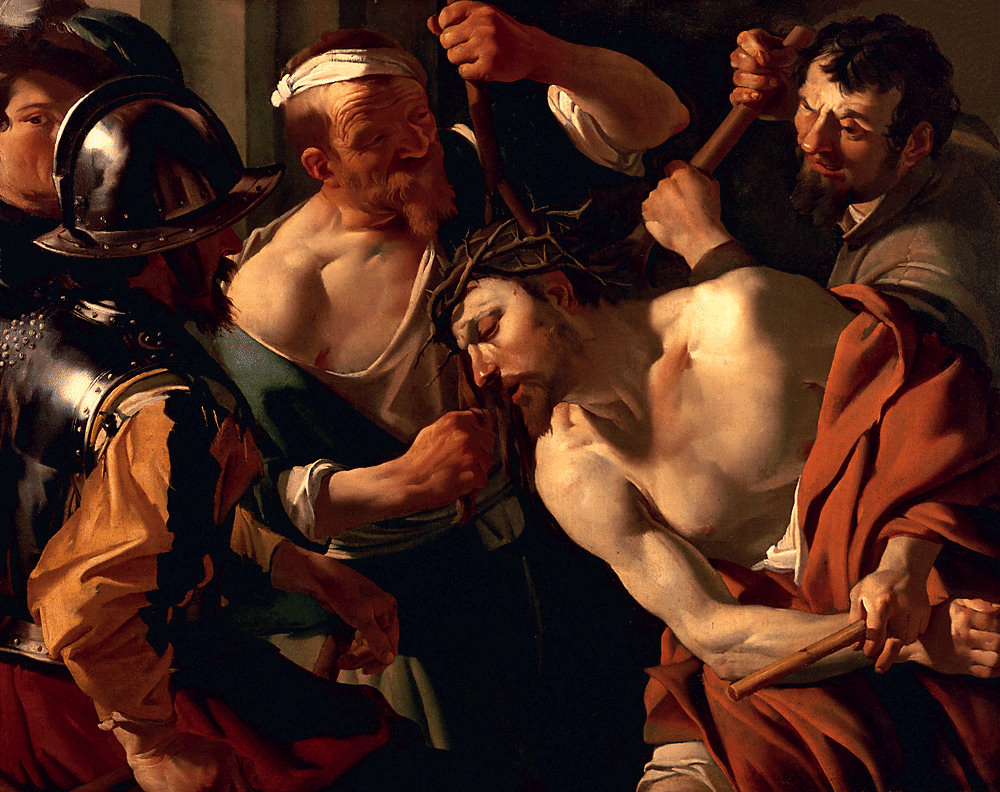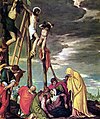
Jesus, King of the Jews
In the New Testament, Jesus is referred to as the King of the Jews, both at the beginning of his life and at the end. In the Koine Hellenic of the New Testament, e.g., in John 19:3, this is written as Basileus ton Ioudaion (βασιλεὺς τῶν Ἰουδαίων).[1]
Both uses of the title lead to dramatic results in the New Testament accounts. In the account of the nativity of Jesus in the Gospel of Matthew, the Biblical Magi who come from the east call Jesus the "King of the Jews", causing Herod the Great to order the Massacre of the Innocents. Towards the end of the accounts of all four canonical Gospels, in the narrative of the Passion of Jesus, the title "King of the Jews" leads to charges against Jesus that result in his crucifixion.[2][3]
The initialism INRI (Latin: Iesus Nazarenus, Rex Iudaeorum) represents the Latin inscription (in John 19:19 and Matthew 27:37), which in English translates to "Jesus the Nazarene, King of the Jews", and John 19:20 states that this was written in three languages—Hebrew,[a] Latin, and Hellenic (ΙΝΒΙ = Ιησούς Ναζωραίος Βασιλεύς Ιουδαίων)—during the crucifixion of Jesus.
The title "King of the Jews" is only used in the New Testament by gentiles, namely by the Magi, Pontius Pilate, and the Roman soldiers. In contrast, the Jewish leaders use the designation "Messiah". They use Hebrew words and did not say 'Christ', a Greek translation word.[7] Although the phrase "King of the Jews" is used in most English translations,[b] it has also been translated "King of the Judeans" (see Ioudaioi).[8]
King of the Jews vs King of Israel[edit]
In the New Testament, the "King of the Jews" title is used only by the gentiles, by the Magi, Pontius Pilate, and Roman soldiers. In contrast, the Jewish leaders prefer the designation "King of Israel" as in Matthew 27:42 and Mark 15:32. From Pilate's perspective, it is the term "King" (regardless of Jews or Israel) that is sensitive, for it implies possible rebellion against the Roman Empire.[2]
In the Gospel of Mark the distinction between King of the Jews and King of Israel is made consciously, setting apart the two uses of the term by the Jews and the gentiles.[15]



